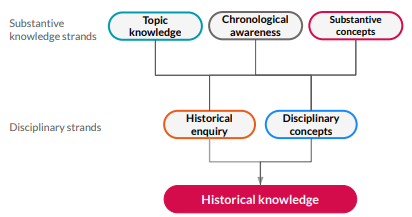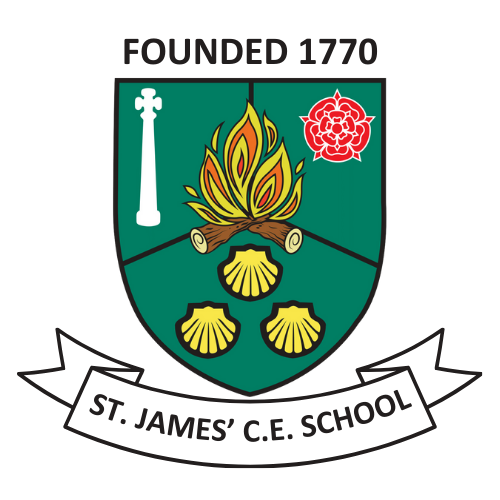History
Link Governor: MrP Cairns
Intent
At Leyland St James’ CE Primary School, we aim to inspire curiosity and interest about the past – including Britain and the wider world. Throughout each class, we feel it is important to develop clear chronological knowledge and an inquisitive mind. Through teaching chronology, we believe it will help understand the past whilst identifying change, cultural understanding and give the children a sense of identity.
Local history is prevalent throughout our history curriculum with the intention of children gaining an appreciation and understanding of Leyland and Lancashire’s historical past. We aim to give children an understanding of people and events whilst making links locally, nationally and globally.
We aim is to inspire children’s curiosity of the past and help them to develop key skills to develop a deep understanding of people’s lives, the process of change, the diversity of societies and our own identity. We enable the children to think as historians; learning to enquire, to ask and answer questions about historical artefacts, and to discern how and why contrasting arguments and interpretations of the past have been constructed.
Implementation
History at Leyland St James emphasises the importance of historical knowledge being shaped by disciplinary approaches, as shown in the diagram below. These strands are interwoven through all our history units to create engaging and enriching learning experiences which allow the children to investigate history as historians do.

.
In EYFS, children explore the concept of history by reflecting on key experiences from their own past, helping them understand that they each have their own histories. Then, they engage in activities to compare and contrast characters from stories, including historical figures, deepening their understanding of how individual lives fit into broader historical narratives. Children will further develop their awareness of the past in Key Stage 1 and will begin to develop an awareness of the past using historical vocabulary. They study people and events and begin to identify similarities and differences between different time periods. Children learn some of the ways in which we find out about the past and how events studied fit into the chronological framework. In Key Stage 2, children build on prior knowledge and continue to develop chronologically secure knowledge of British, local and global history; identifying connections, contrasts and trends over time using a range of historical sources.
Knowledge organisers are used to support learning and allow children to scaffold their understanding of vocabulary, facts and key concepts. Vocabulary is a key focus throughout each unit, ensuring it is age-appropriate and relevant. Historical vocabulary is built upon each year to develop key skills within the subject.
Carefully planned and considered experiences in and out of the classroom are delivered to create memorable learning opportunities to engage and interest our children and as a result, further support their understanding.
Impact
Our history curriculum provides children with a detailed insight into the past through high quality lessons and educational experiences. Children, as a result, develop a strong understanding of historical events whilst continuing to develop their understanding of chronology.
History is constantly monitored through both formative and summative assessment opportunities. We measure the impact of the history curriculum in the following ways
- Kahoot quiz half way through a unit.
- Skill catcher and knowledge assessment quiz at the end of the unit.
- A reflection on standards achieved against the planned outcomes.
- Pupil discussions about their learning.
- Work scrutiny and staff discussion.

